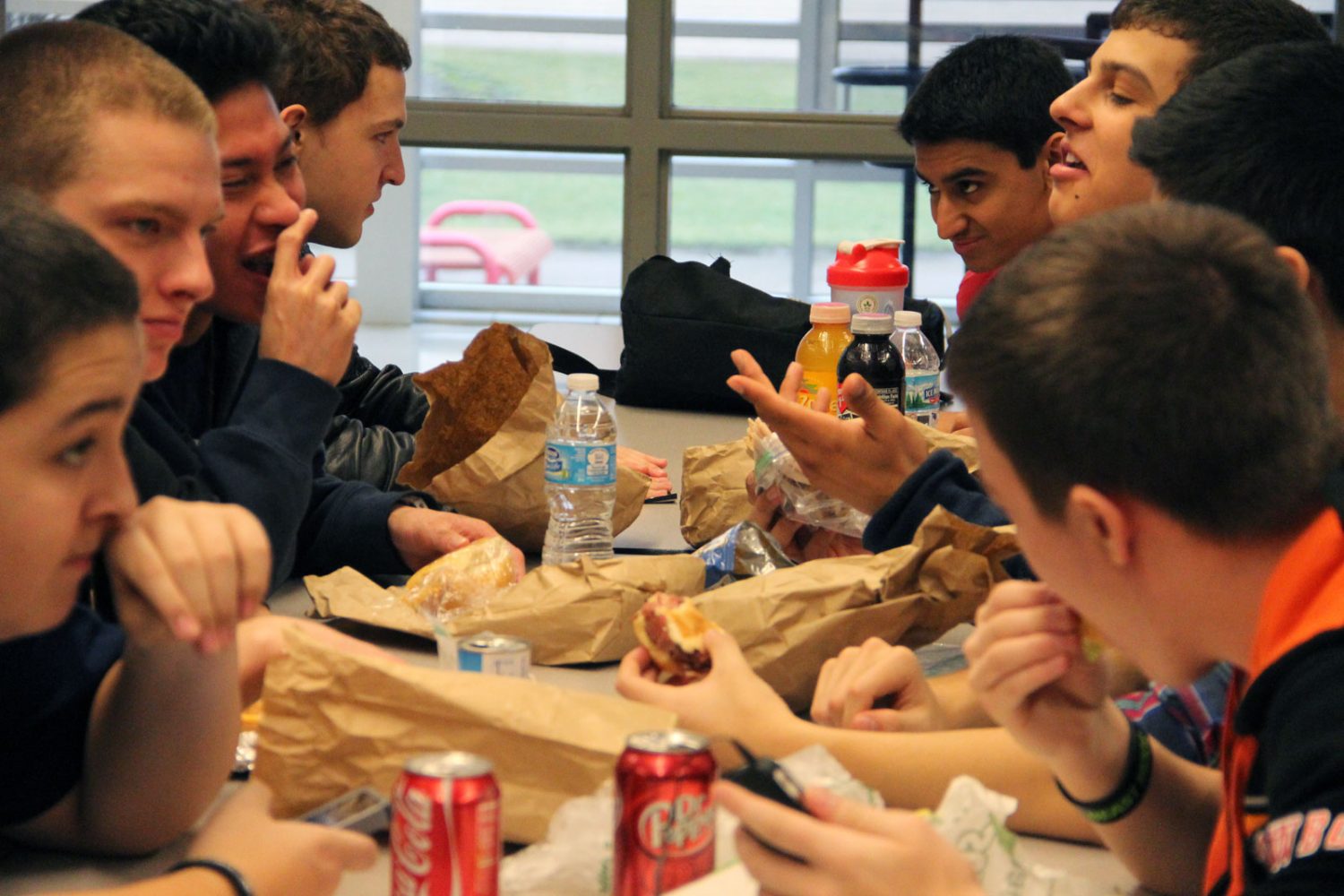More Dietary Diversity in the Cafeteria Is Needed
Feb 15, 2019
The Niles West cafeteria has a larger variety of choices than many other comparable schools, boasting six stations serving anything from a burrito bowl to a panini. For many students, the cafeteria is their only food during the day, and for a significant number, their most secure meal. Since the importance of guaranteed food for these students can never be overstated, we should ensure that the meal options available are accommodating to everyone’s dietary needs.
Firstly, many students follow a halal dietary requirement, which is especially relevant for what kinds of meat a student is able to eat. However, the school cafeteria offers no designated meal station for these students, making it confusing and time-consuming to clarify which menu items are halal. This can make it difficult for some students to access lunch at school. By the same token, many students also require their food to be Kosher, which is also not explicitly offered by the school. In a diverse area like Skokie, it’s especially important to be accommodating and allow students from every background to feel like they can access meals at school.
Furthermore, the cafeteria fails to offer vegan options as well. Almost everything in the cafeteria contains animal products, with the only exception being a salad without dressing, which is devoid of taste. Every vegetarian option (whether it be pizza or a panini) contains dairy, such as butter or cheese. This makes it nearly impossible for students following a vegan diet to access food in the cafeteria, undermining the cafeteria’s essential position as a place where students are guaranteed a meal. It may also discourage students whose only secure meal is at school from following healthier diets.
There is also a myriad of unhealthy options offered by the school cafeteria. While it’s not necessarily the school’s responsibility, there shouldn’t be pizza and cheeseburgers replacing dietary requirements for other students.
“I think the school should offer vegan options because, in this day and age, there are more vegans than ever. Kids are changing their diets to better the environment and we should support their choices,” junior Libby de Klerk said.
While the lack of meal choices can be something that seems just plain wrong, it can also have negative effects on school performance and grades.
Lack of dietary accommodations may cause students to be unable to access food at school, making it difficult to concentrate or complete basic assignments in class. Studies demonstrate that students who skip lunch frequently are more likely to be deficient in vitamins A, D, E, and K. They also are almost guaranteed to consume less healthy fat, protein, and fiber, while eating more in sugar later in the day. In a time where more than 13 million kids nationwide come to school hungry, it’s more important than ever to encourage students to adopt healthy, regular eating habits. Providing students with the correct dietary accommodations are crucial to not just a productive school day but, more importantly, keeping students happy and healthy.





Person Of This Living Time • Apr 6, 2022 at 9:57 PM
this is so true!! keep up the good work!